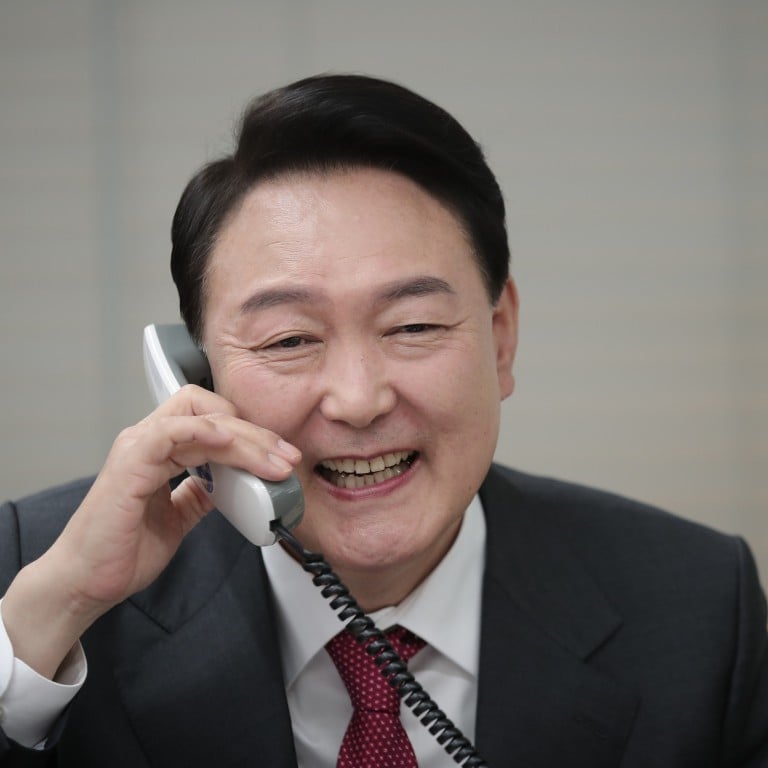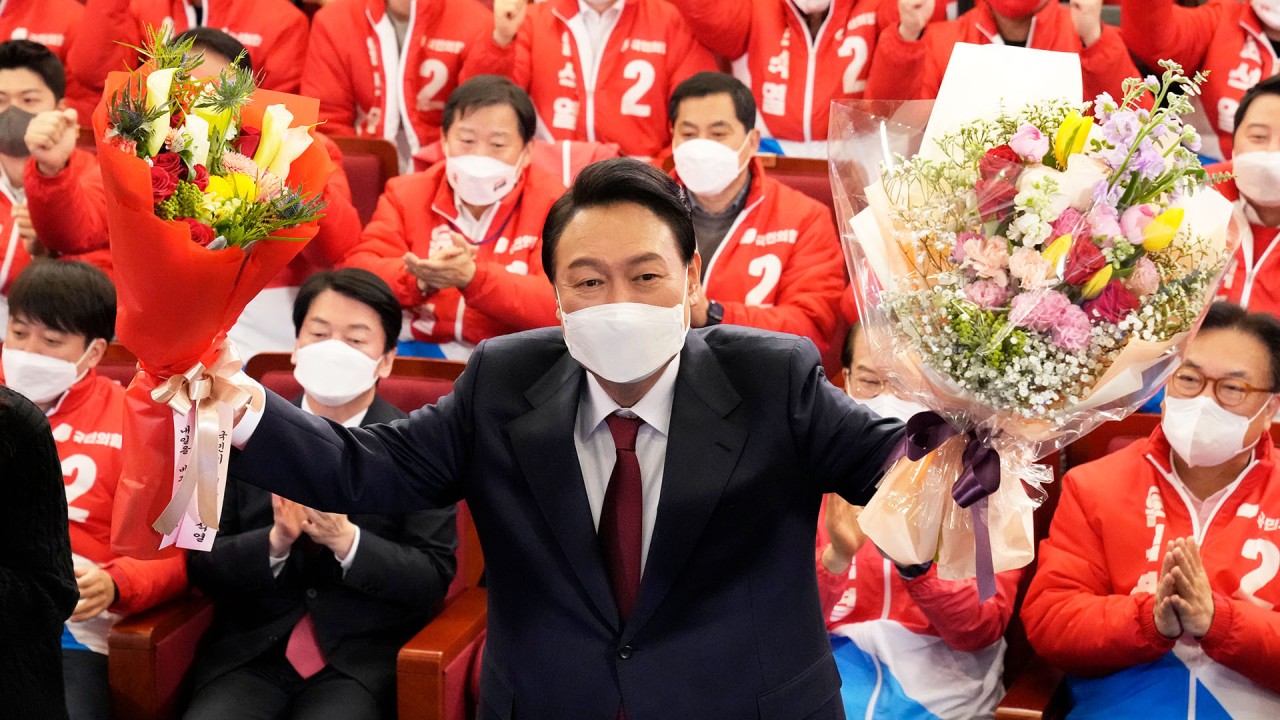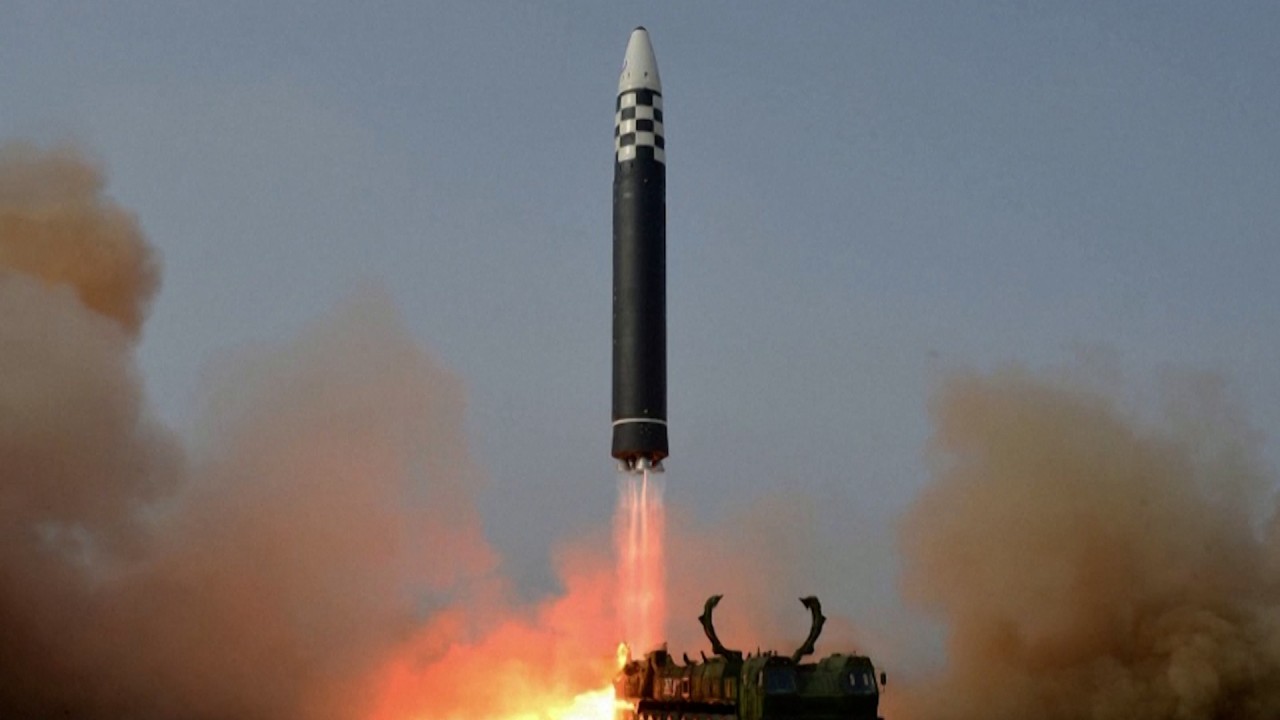
China’s Xi Jinping plays up close ties with South Korea in Yoon Suk-yeol call
- Chinese president describes the two countries as inseparable partners in conversation with Seoul’s incoming leader
- Yoon is known for a pro-Washington outlook and used anti-Chinese rhetoric in his campaign
In the call – described by South Korea officials as unprecedented – Xi said China and South Korea were inseparable cooperative partners.
“China and South Korea are permanent neighbours and inseparable partners. China always attaches great importance to China-South Korea relations,” Chinese state broadcaster CCTV quoted Xi as saying.
“At present, the international community is facing multiple challenges, and China and South Korea have the responsibility to maintain regional peace and promote world prosperity.”
He said China was willing to work with South Korea to ensure stability in global industrial and supply chains, and maintain the international system with the United Nations as the core.
South Korean officials said it was the first time the Chinese president had spoken to an incoming overseas leader before taking office.
Since his election earlier this month, Yoon has been in contact with leaders from the United States, Japan, Britain, Australia, India and Vietnam.
During his campaign, Yoon openly criticised the incumbent leader Moon Jae-in’s approach to China as too conciliatory, and Beijing is watching to see how he will navigate between China – a neighbour and South Korea’s biggest trading partner – and the US, its firm ally.
Beijing has condemned the grouping as an attempt to create an “Indo-Pacific version of Nato” to counter China.
Beijing, which sees THAAD as a threat to its strategic interest, was furious when former South Korean president Park Geun-hye agreed to deploy the US system on the Korean peninsula in 2016. China hit back with informal economic penalties, including bans on travel groups to South Korea.
In an interview with the Seoul Shinmun, Chinese ambassador Xing Haiming cautioned against further THAAD deployments, saying the idea was “a sensitive issue that should no longer be highlighted so as to avoid affecting the overall situation of relations between the two countries”.
“China is willing to uphold the principle of mutual respect with South Korea, strengthen friendship, focus on cooperation and promote better development of relations between the two countries,” the Chinese embassy quoted Xing as saying on Thursday.
“At the same time, we will firmly safeguard our national interests.”
US troops in South Korea step up defence drills amid North Korea test signs
Under Moon, South Korea, Asia’s fourth-biggest economy, has pursued a policy of strategic neutrality to avoid being caught in the bitter geopolitical competition between China and the US.
But there has been speculation that Yoon, who takes office in May, may break the balance strategy and move the country closer to the US, a treaty ally he previously said shared with South Korea the core values of human rights and a market economy.
Five hours after his election, Yoon spoke to US President Joe Biden, vowing to strengthen South Korea’s strategic alliance with the US, build strong national defences to deter North Korea, and pursue a future-oriented relationship with Japan, another key US ally in the region, according to news agency Yonhap.
The Xi-Yoon call came a day after North Korea confirmed it successfully test-fired a new ICBM, called the Hwasong-17.
Yang Moo-jin, a professor at the University of North Korean Studies in Seoul, said Xi’s phone call with Yoon was a welcome development that would help ease tensions following the ICBM test.
Yang said Yoon took a hard line against North Korea and campaigned on anti-China sentiment widely shared by young voters.
“He used some anti-Chinese rhetoric during the election campaign but the election is over and Yoon can’t ignore the reality that China is the country’s largest trade partner and its role is crucial to maintaining peace on the Korean peninsula,” Yang said.
Additional reporting by Park Chan-kyong



